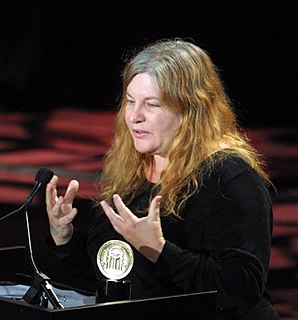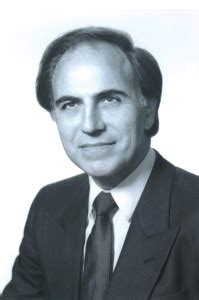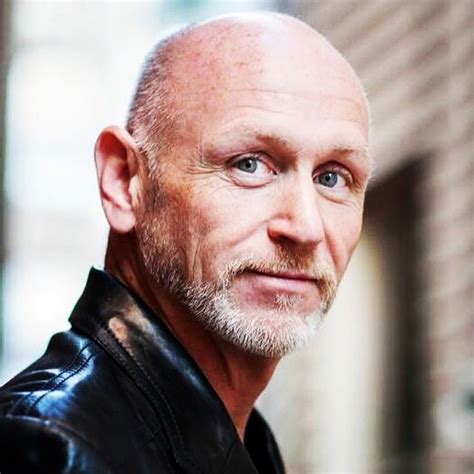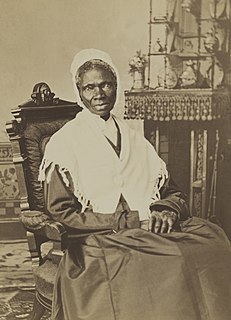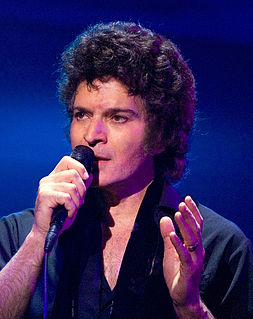Top 1200 Hundred Years Quotes & Sayings - Page 20
Explore popular Hundred Years quotes.
Last updated on April 20, 2025.
People like to blame Mexican food, but look at what's happening globally, look at all the fast foods and products filled with trans fat. Before the Mexican Revolution, a hundred years ago, people were eating what now macrobiotics tells us to eat, corn, black beans, rice. That's what people were eating - and chile peppers. That's a healthy diet.
If you trace back all those links in the chain that had to be in place for me to be here, the laws of probability maintain that my very existence is miraculous. But then after however many decades, less than a hundred years, they disburse and I cease to be. So while they're all congregated and coordinated to make me, then-and I speak her on behalf of all those trillions of atoms-I should really make the most of things.
In a few hundred years, when the history of our time will be written from a long-term perspective, it is likely that the most important event historians will see is not technology, not the Internet, not e-commerce. It is an unprecedented change in the human condition. For the first time - literally - substantial and rapidly growing numbers of people have choices. For the first time, they will have to manage themselves. And society is totally unprepared for it.
Consider the Koran... this wretched book was sufficient to start a world-religion, to satisfy the metaphysical need of countless millions for twelve hundred years, to become the basis of their morality and of a remarkable contempt for death, and also to inspire them to bloody wars and the most extensive conquests. In this book we find the saddest and poorest form of theism. Much may be lost in translation, but I have not been able to discover in it one single idea of value.
it is not men that most women worry about when they rise to the defense of the status quo. Their apparent endorsement of male supremacy is, rather, a pathetic striving for self-respect, self-justification, and self-pardon. After fifteen hundred years of subjection to men, Western woman finds it almost unbearable to face the fact that she has been hoodwinked and enslaved by her inferiors - that the master is lesser than the slave.
Will's face turned grave. "Be careful with it, though. It's six hundred years old and the only copy of its kind. Losing or damaging it is punishable by death under the Law." Tessa thrust the book away from her as if it were on fire. "You can't be serious." "You're right. I'm not." Will leapt down from the ladder and landed lightly in front of her. "You do believe everything I say, though, don't you? Do I seem unusually trustworthy to you, or are you just a naive sort?
If there is any person that I do follow somewhat closely, at least ideas I like, it's been Frederich Nietzsche, but he's been dead a few hundred years. And at the same time, I wouldn't say that I actually, from a political standpoint, like many of his ideas. It just happened to be the core of a lot of my own beliefs of trying to modify my body and live indefinitely. What really applies is an evolutionary instinct to become a better entity altogether.
Has it ever occurred to you that one hundred pianos all tuned to the same fork are automatically tuned to each other? They are of one accord by being tuned, not to each other, but to another standard to which each one must individually bow. So one hundred worshipers met together, each one looking away to Christ, are in heart nearer to each other than they could possibly be, were they to become 'unity' conscious and turn their eyes away from God to strive for closer fellowship.
I don't know that movies are important. But I know that stories are important. Movies may disappear. They've only been around, for God's sake, for the last hundred years... I think that it's the need to tell stories, and that people need to be told stories. It's the old sitting around the fire, you know.
Why is it that Serge Lange's Linear Algebra, published by no less a Verlag than Springer, ostentatiously displays the sale of a few thousand copies over a period of fifteen years, while the same title by Seymour Lipschutz in the The Schaum's Outlines will be considered a failure unless it brings in a steady annual income from the sale of a few hundred thousand copies in twenty-six languages?
I am deeply gladdened that 1993 has been delcared the International Year of Indigenous Peoples by the United Nations. It is the first year we have had in five hundred years. This is thanks to the struggle of many untitled, unnamed indigenous brothers who, without understanding international law, patiently walked the corridors asking for some time. Thanks to them this international year has been declared.
Two hundred years ago the forces of freedom challenged this idea. The children of the new enlightenment rose up to defy the tyranny of arrogant clergy and the censorship of pious bureaucrats. They boldly proclaimed that the state must be free from religious coercion and that religion must be free from state control. All individuals have the right to pursue the dictates of their own conscience. All citizens even have the right not to be religious at all.
But the others, those who tried to bring Jesus to life at the call of love, found it a cruel task to be honest. The critical study of the life of Jesus has been for theology a school of honesty. The world had never seen before, and will never see again, a struggle for truth so full of pain and renunciation as that of which the Lives of Jesus of the last hundred years contain the cryptic record.
Her nomination for vice president in 2008 represents the most desperate inclinations of the Republican Party. In two hundred years, I suspect historians will use Palin as an example of how insane America became in the decade following the destruction of the World Trade Center, and her origin story will seem as extraterrestrial and eccentric as Abe Lincoln jumping out of a window to undermine a voting quorum in 1840.
Mac [Barnett] and I prank each other during our presentation. We show baby pictures of each other looking completely ridiculous. I can't believe the frilly shirt that I'm in, and Mac's wearing a sailor suit and playing a toy piano. That's a perfect example of a good prank, where we have three hundred people literally laughing in our faces, three hundred kids at every assembly. And it feels really good. It's really fun.
There is no difference between an ISIS gunman and an American gunman that goes into a mosque, or the gunman Baruch Goldstein who went into the mosque in Bethlehem and killed 29 guys about fifteen years ago. Goldstein took his service weapon and tried to kill everybody in the mosque. He shot over a hundred people. There's no monopoly on terrorism. Terrorism experts know this and we live according to that.
There is something essential and necessary about the immediacy and democracy of poetry. If you look at the history of literature, poetry is the one enduring genre from Homer to Ashbery - no other literary form has lasted as long. The novel is only two or three hundred years old... And yes, it's mainstream if we look back, we often turn to poetry to encapsulate what was going on in a particular moment because it crystalizes the experience in a very condensed and meaningful way.
Capitalism is going to deal itself out of existence, but before it does that, you're gonna pay $50 for a latte, because inflation is going impoverish all of us before people get pissed off enough to realize that all of the last hundred years of economic progress was actually a shell game to create billionaires, while the great masses of people saw their standard of living eroded and destroyed.
I think we all look for clues that we are not utterly alone... Clues we find in literature and paintings and music and even someone’s eyes; clues that demonstrate that someone else has felt the same indescribable feelings, seen the same things or passed by the spot even if it was by candlelight three hundred years ago. It means everything, like finding footprints in the sand of a deserted island.
When you go to China and the developing world, people understand more clearly the dangers that are coming at them because they're living closer to the margin. They don't have any of the false sense of invulnerability that Americans have. People from developing countries also feel that it's their right, if you're talking in terms of justice, to use fossil fuels like we did for a hundred years to get rich. It's hard for them to give up that vision.
The goal of Martin Luther King is to get the Negroes to forgive the people the people who have brutalized them for four hundred years, by lulling them to sleep and making them forget what those whites have done to them, but the masses of black people today don't go for what Martin Luther King is putting down.
Very well, then, where do we arrive? Where do we arrive with our respect, our homage, our filial affection? At Adam! At Adam, every time. We can't build a monument to a germ, but we can build one to Adam, who is in the way to turn myth in in fifty years and be entirely forgotten in two hundred. We can build a monument and save his name to the world forever, and we'll do it!
Huge knots of sea-weed hung upon the jagged and pointed stones, trembling in every breath of wind; and the green ivy clung mournfully round the dark and ruined battlements. Behind it rose the ancient castle, its towers roofless, and its massive walls crumbling away, but telling us proudly of its own might and strength, as when, seven hundred years ago, it rang with the clash of arms, or resounded with the noise of feasting and revelry.
In a man like Friedrich von Schlegel the courage to be as an individual self produced complete neglect of participation, but it also produced, in reaction to the emptiness of this self-affirmation, the desire to return to a collective. Schlegel, and with him many extreme individualists in the last hundred years, became Roman Catholics. The courage to be as oneself broke down, and one turned to an institutional embodiment of the courage to be as a part.
Perhaps within the next hundred years, science will perfect a process of thought transference from composer to listener. The composer will sit alone on the concert stage and merely 'think' his idealized conception of his music. Instead of recordings of actual music sound, recordings will carry the brainwaves of the composer directly to the mind of the listener.
In this way, his unhappy soul struggled with its anguish. Eighteen hundred years before this unfortunate man, the mysterious Being, in whom all the sanctities and all the sufferings of humanity come together, He too, while the olive trees trembled in the fierce breath of the Infinite, had brushed away the fearful cup that appeared before him, streaming with shadow and running over with darkness, in the star-filled depths. (pg. 236)
I stood in Venice, on the Bridge of Sighs; A palace and a prison on each hand; I saw from out the wave of her structure's rise As from the stroke of the enchanter's wand: A thousand years their cloudy wings expand Around me, and a dying Glory smiles O'er the far times, when many a subject land Look'd to the winged Lion's marble pines, Where Venice sate in state, throned on her hundred isles.
To wait so long/And want a man refined and strong/Is not at all uncommon. And yet to wait one hundred years/Without a tear, without a care/Makes for a very rare woman. So here our tale appears to show/How marriage deferred/Brings joy unheard/Nothing lost after a century or so. But others love with more ardor/And wed quickly out of passion/Whatever they do/I won’t deplore/Nor shall I preach a lesson.
...and every Wednesday the perfumed young lady slips me a hundred-crown note to leave her alone with the convict. And by Thursday the hundred crowns are already gone in so much beer. And when the visiting hour is over, the young lady comes out with the stink of jail in her elegant clothes; and the prisoner goes back to his cell with the lady's perfume in his jailbird's suit. And I'm left with the smell of beer. Life is nothing but trading smells.
Maybe a hundred years ago our people should have run away from this place, I said... And then run from the next place and the next place and the place after that? You run once, what makes you think you won't have to run all the rest of your life?... We love moment to moment... Everything changes. One minute we are part of the river, and the next we are joined with the sea.
There's a kind of poetic aspect to inert gas. And remember, first of all, they were completely unknown a hundred years earlier. We just didn't know about them. And then when they were discovered in the atmosphere, the idea that this is a material that would breathe in and exhale and becomes part of us for a while made it even more intriguing. The names, the Greek names, are interesting, too - if you translate neon, xenon and so forth are kind of interesting.
One hundred years ago, people were faced with the choice of learning to read or remaining illiterate laborers who would be left behind as have-nots in a rapidly modernizing world. In the coming century, being able to command a world that will be thoroughly computerized will set apart those who can live successfully in the future from those who will be utterly left behind.
If there's a world here in a hundred years, it's going to be saved by tens of millions of little things. The powers-that-be can break up any big thing they want. They can corrupt it or co-opt it from the inside, or they can attack it from the outside. But what are they going to do about 10 million little things? They break up two of them, and three more like them spring up!
My favorite method of encryption is chunking revolutionary documents inside a mess of JPEG or MP3 code and emailing it off as an "image" or a "song." But besides functionality, code also possesses literary value. If we frame that code and read it through the lens of literary criticism, we will find that the past hundred years of modernist and postmodernist writing have demonstrated the artistic value of similar seemingly arbitrary arrangements of letters.
The good news is that there is strong movement in this direction of shifting from domination systems to partnership systems. Over the past several hundred years, one progressive movement after another has challenged traditions of domination - from the 18th century "rights of man" movement challenging the "divinely ordained right" of kings to rule their "subjects" to today's environmental movement challenging the once hallowed "conquest of nature."
All existing art was religious until perhaps a hundred years ago. Within that there's obviously been lots of room for manipulation. I think that's because our current religion is capitalism. Capitalism has the functions of patronage, commissions, control of content, bestowing of space, elevation of certain artists over others based on how much they pander to people in power, the determination of value of the work, all of it. Capitalism commissions artwork now, the market.
We've always told stories through music and rhythm and movement, and what we know as western opera has only been around for a few hundred years and in different forms before that. There is great passion regardless of the fact that it's expensive and people who invest in it are giving money because they believe in it. They're not getting anything back other than satisfaction and enjoyment of hopefully many people having a human, deep, reflective and meditative experience that at its core is incredibly emotional.
Whether you have a hundred friends on Facebook or whether you're on TV or whatever, at every level, everybody has a platform. We all have a responsibility, given what's going on, to speak using that platform as much as we can, and to engage. Whether that's calling members of Congress, marching, getting involved locally, getting involved with Let America Vote, or if all you can get done during the day is you see the news and you want to make sure your hundred friends on Facebook know what you think about it, that is a really important part of this.
In our twenties, when there is still so much time ahead of us, time that seems ample for a hundred indecisions, for a hundred visions and revisions—we draw a card, and we must decide right then and there whether to keep that card and discard the next, or discard the first card and keep the second. And before we know it, the deck has been played out and the decisions we have just made will shape our lives for decades to come.
He kissed back, all the pages spread out around us like riddles waiting to be solved. Let them wait. Let my genes unravel, my hinges come loose. If my fate rests in the hands of a madman, let death come and bring its worse. I'll take the ruined craters of laboratories, the dead trees, this city with ashes in the oxygen, if it means freedom. I'd sooner die here than live a hundred years with wires in my veins.
From age 23 to 44 - I'm 45 now - I was always in need of money, and I was especially in need of it from 23 to about 34, and my great aunt would always give me money, a hundred bucks, every two months or so, and a lot of times that hundred bucks made a huge difference - I could eat or pay a small bill. It kept me going. She gave me money. It was very loving.
The policy of letting things alone, in the practical sense that the Government should never interfere with business or go into business itself, is called Laisser-faire by economists and politicians. It has broken down so completely in practice that it is now discredited; but it was all the fashion in politics a hundred years ago, and is still influentially advocated by men of business and their backers who naturally would like to be allowed to make money as they please without regard to the interest of the public.
Music was not always my fan. Sometimes there were lean years, years where I was uncertain if I was doing the right or wrong thing. And years where there wasn't the acceptance, years of economic hardships, and failures. That's when you get to know either who you are, what you're made of, or what's inside of you. If you don't probe deeper, you'll never know, and you can't go on.
As for the Jews, I am just carrying on with the same policy which the Catholic Church has adopted for fifteen hundred years, when it has regarded the Jews as dangerous and pushed them into ghettos etc., because it knew what the Jews were like. I don't put race above religion, but I do see the danger in the representatives of this race for Church and State, and perhaps I am doing Christianity a great service.
America has never forgotten - and never will forget - the nobler things that brought her into being and that light her path - the path that was entered upon only one hundred and fifty years ago ... How young she is! It will be centuries before she will adopt that maturity of custom - the clothing of the grave - that some people believe she is already fitted for.
I am seized with an abiding fear regarding what these two instruments are doing to our society, our culture and our heritage. Our history will be what we make it. And if there are any historians about fifty or a hundred years from now, and there should be preserved the kinescopes for one week of all three networks, they will there find recorded in black and white, or color, evidence of decadence, escapism and insulation from the realities of the world in which we live.
A sturdy lad from New Hampshire or Vermont who in turn tries all the professions, who teams it, farms it, peddles, keeps a school,preaches, edits a newspaper, goes to Congress, buys a township, and so forth, in successive years, and always like a cat falls on his feet, is worth a hundred of these city dolls. He walks abreast with his days and feels no shame in not "studying a profession," for he does not postpone his life, but lives already.
I want it so that every minister will be not a parrot, not an owl sitting upon a dead limb of the tree of knowledge and hooting the hoots that have been hooted for eighteen hundred years. But I want it so that each one can be an investigator, a thinker; and I want to make his congregation grand enough so that they will not only allow him to think, but will demand that he shall think, and give to them the honest truth of his thought.
When I think about, say, 1995, or whever the last moment was before most of us were on the internet and had mobile phones, it seems like a hundred years ago. ... Time passed in fairly large units, or at least not in milliseconds and constant updates. A few hours wasn't such a long time to go between moments of contact with your work, your people or your trivia.
I probably have over a hundred pairs of high-heel shoes. I collect them. Over however-many years, from, like, the mid-'80s on - yes, I'm that old - I've been in drag several times in my life, and I collect a lot of stuff, and I do have a lot of high-heel shoes that I'm sure a lot of people would be jealous about.
Nearly all the writing of our time is likely to disappear in a hundred years. Certainly most readers - and nearly all critics - feel that [Kurt] Vonnegut started to repeat himself, to grow increasingly self-indulgent and meandering, and to sometimes just blather in his later work. But his books up to "Slaughterhouse-Five" do possess a distinctiveness that will insure some kind of permanence, if only in the history of the 1960s and of science fiction.
The public negotiations and secret intrigues of the English (Jews) and the French (Jews) have been employed for centuries in every court and country in Europe. Look back to the history of Spain, Holland, Germany, Russia, Sweden, Denmark, Prussia, Italy and Turkey for the last hundred years...all the power of Europe will be continually maneuvering with us to work us into the real or imaginary balance of power.
Books have survived television, radio, talking pictures, circulars (early magazines), dailies (early newspapers), Punch and Judy shows, and Shakespeare's plays. They have survived World War II, the Hundred Years' War, the Black Death, and the fall of the Roman Empire. They even survived the Dark Ages, when almost no one could read and each book had to be copied by hand. They aren't going to be killed off by the Internet.











